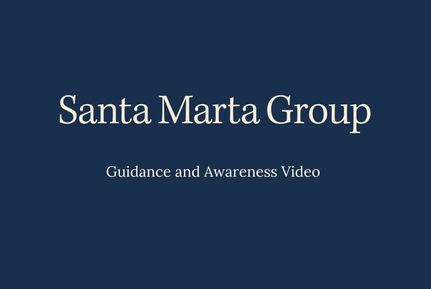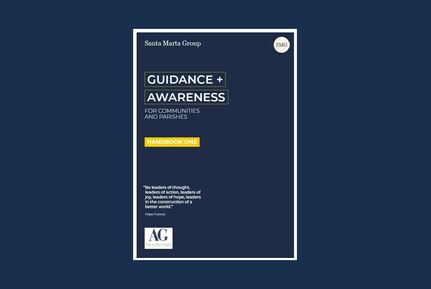St. Bakhita Day

Find out about St Bakhita Day events happening in your local areal here.
Contents
- What to do if you suspect human trafficking
- Understanding human trafficking
- How to spot human trafficking
- Educational resources
With over 136,000 people in Britain and an estimated 50 million worldwide trapped in modern slavery, the crime of human trafficking has become one of the most pervasive of our time. Tackling this crisis requires a united effort from all sectors of society, including law enforcement, civil organisations, and faith communities.
The Santa Marta Group serves as a powerful catalyst for systemic change, uniting leaders from civil society, law enforcement, businesses, faith groups, and local communities to work together to combat human trafficking and work toward its eradication.
Feast Day of St. Josephine Bakhita - February 8
On February 8, the feast day of St Josephine Bakhita, the Patron Saint of victims of human trafficking, we remember and pray for the 50 million victims of this evil trade in human beings. With as many as 50 million victims of human trafficking around the world, we call on all states to re-priorities efforts to end this evil market in humans as they pledged to do with Sustainable Development Goal 8.7 in 2015. This will require increased funding of the appropriate state agencies, and increased collaboration between state actors, police, civil society and business.
What to do if you suspect human trafficking?
If you suspect human trafficking but are unsure whether to act, remember that reporting your concerns can make a critical difference. Look for signs of exploitation, such as individuals appearing fearful, isolated, or controlled by others.
United Kingdom
Call the police at 999, or Crimestoppers at 0800 555 111 to report the crime anonymously:
✆ 999 |
✆ 0800 555 111 |
Ireland
Call the Guarda at 999, or their Confidential Line Free-phone at 1800 666 111
✆ 999 | ✆ 1800 666 111 |
The Police, Crimestoppers and Garda are equipped to handle sensitive information and respond appropriately to potential human trafficking situations.
Trust your instincts. It's better to report than to stay silent when someone might need help. By contacting the appropriate authorities, you contribute to breaking the cycle of exploitation and helping victims regain their freedom and dignity.
Understanding Human Trafficking
Victims of human trafficking are coerced into working for little or no pay, forced into exploitative sex work, subjected to forced marriages or made to engage in criminal activities. Essentially, they are stripped of their individual freedom. While certain countries and regions may have specific vulnerabilities, the effects of human trafficking are global, impacting every country across the world.
Human trafficking can be found across all sectors, from the food we consume to the products we purchase. Although there is no singular legal definition, the term "modern slavery" is often used to encompass various forms of exploitation, such as forced labor and debt bondage.
Human trafficking refers to situations of exploitation where individuals are unable to escape due to threats, violence, coercion, deception, or abuse of power.
How to Spot Human Trafficking?
Recognising human trafficking is key to combating it. Look out for:
|
To understand the extent and prevalence of human trafficking within your local community,
stay informed on the latest news and key legislation.
The Santa Marta Group
The Santa Marta Group is an alliance of law enforcement, faith communities, and civil organizations working together to end human trafficking. By fostering collaboration, they aim to create systemic change and empower victims while holding perpetrators accountable.
We also educate our network through the many available resources on our website, providing essential tools and information to raise awareness and drive action in the fight against human trafficking.
Together, we can make a difference. On St. Bakhita Day 2025, let’s renew our commitment to ending human trafficking and supporting its victims.
| |









